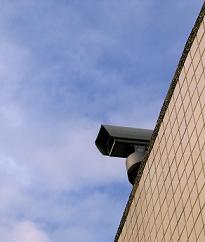Spot The SPOT…

“Screening of Passengers by Observation Techniques”, a.k.a. SPOT has been an effort by the TSA to profile passengers through observation alone. Now, before you start screaming blue murder, we’re not talking about the so-called “racial profiling” here – race has nothing to do with it, and if you think it does, go read something else.
Now, the SPOT initiative, because we can hardly call this a “program” or a “method”, since none of it has been tested or proven scientifically, is costing a whole boatload of money, and so far, has yielded no results what so ever.
As you may have noticed, we here at SnallaBolaget support the TSA, we think it’s a hard job in a stressful environment, but the SPOT program is one of the silliest ideas ever. An average of 30 seconds of “observation” is all one of these SPOT-trained agents(?)/officers(?) gets, and that’s the average, people. That means that there are a lot of instances where the TSA agent gets less time to observe, and make a judgement as to whether this person is a possible threat to security or not.
 Some other readers (or possibly the same ones) may have noticed that we here at SB also criticize some people quite a bit, amongst them Bruce Schneier, the self professed rock star of the security field.
Some other readers (or possibly the same ones) may have noticed that we here at SB also criticize some people quite a bit, amongst them Bruce Schneier, the self professed rock star of the security field.
Please take a look at this “interview” he did with then TSA boss Kip Hawley, where Bruce thinks the SPOT initiative is one of the few things the TSA is doing right…
This was actually not intentional – we had no idea that Bruce was so for this before he popped up in the research we did for this post, and we only mention this because it seems funny that whatever he says, we say against, and the other way around… even when we don’t know it.
Anyway, take a look at the SPOT program. If nothing else, it’s worth about ten minutes of amusement.

I have read your about Snalla Bolaget and haven’t quite figured you out. You appear to have some strong knowledge of security, and then some even stronger opinions. As far as the SPOT experiment, I have to agree with you. I have spent most of my adult life protecting the American way of life in one form or another as a public servant via the armed forces, and with the Government. (current) I comment on the TSA blog as well on occasion when I feel that facts are being misinterpreted or something is flat out wrong.
I would like to know more about your experience and training in security and/or LE. Where can I find that?
Back to SPOT. In my training I have seen observation in many forms. The TSA uses the most basic of techniques and only does a minimal amount of training with their Behavioral Detection Officers (BDO) before they are put out on the lines to observe. My experience tells me that it takes years of time, training, and practical application to be even half way decent at observing and reading people. The idea of the SPOT system is to give very defined parameters to the BDO’s so that they can not do to much (if any) freelancing in this observing role that they have.
I feel that the expense is too great, (200M annually) and the training is not sufficient for these BDO’s to be truly effective. Minus the expense though, they are not really hindering the process that is the airport security net. At best, they may nab someone that is trying to smuggle drugs, at worst, they snag nobody of consequence and delay the passenger that they have stopped anywhere from 5 to 15 minutes.
All of this could be accomplished without the SPOT experiment, or the BDO’s just by random selection of individuals for specific types of secondary screening. Wait, they already do that don’t they? OK, it is a waste.